28 Essential Influencer Marketing Statistics You Need to Know in 2026

Contents
- Top Influencer Marketing Statistics
- Influencer Marketing Global Statistics
- Influencer Marketing UK Statistics
- Influencer Marketing Industry Growth Statistics
- Influencer Marketing for Business Statistics
- Influencer Marketing ROI Statistics
- Instagram Influencer Marketing Statistics
- YouTube Influencer Marketing Statistics
- TikTok Influencer Marketing Statistics
- Using These Influencer Marketing Statistics
- Enjoyed reading these statistics? Find more statistics you need to know in 2026.
Many brands turn to paid advertising to speed up their results when it comes to boosting awareness, engagement, and sales. However, influencer marketing has also proven to be just as effective (if not more), particularly in recent years.
In this post, we’ve compiled some influencer marketing statistics to show why it needs to be part of your overall marketing strategy if you want to expand your reach online.
Stay up to date
Top Influencer Marketing Statistics
To kick things off, here are a few fun influencer marketing statistics to pique your interest:
Over 78% of Marketers in the U.S. Plan to Use Influencers
Approximately 86% of U.S. marketers within companies exceeding 100 employees were projected to leverage influencers for marketing endeavors. On a global scale, the influencer marketing market reached a valuation of 21.1 billion U.S. dollars for 2023.
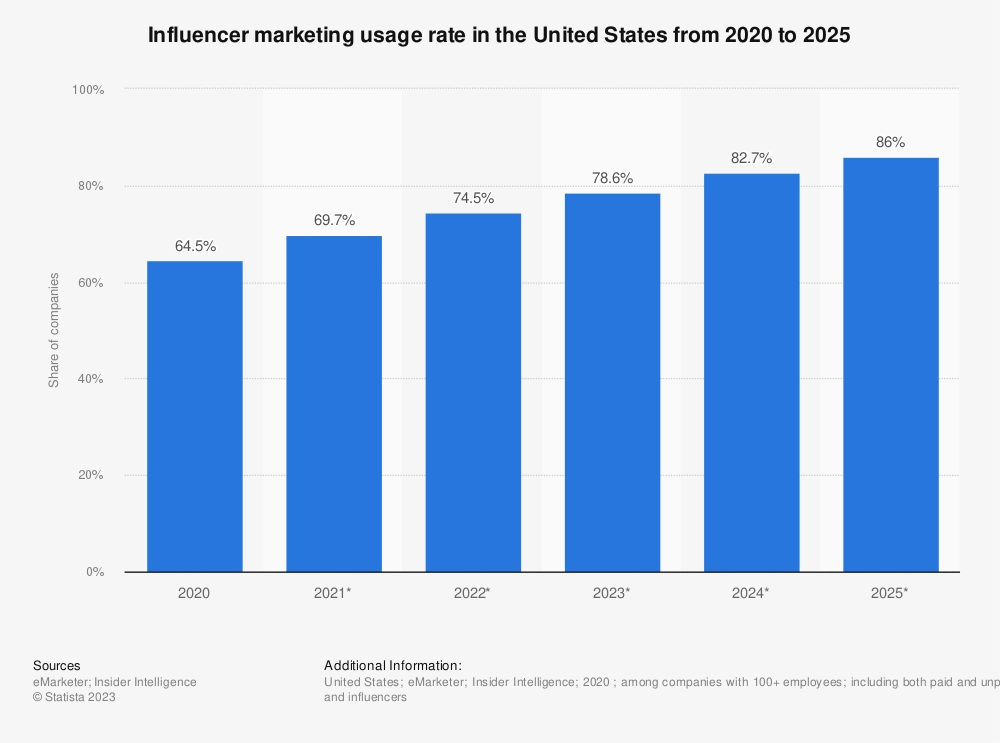
Creating Relevant Content is the Top Objective for Marketers
44% of influencers say they like teaming up with brands to make content that matters to their followers. These creators understand that being real and truthful is what makes them valuable to their audience.
69% of Consumers Trust Influencers’ Recommendations
A recommendation from a creator that you like goes a long way. 69% of consumers trust the product recommendations they get from influencers.
Influencer Marketing Global Statistics
Working with influencers is something that brands worldwide are getting involved in. Here are a couple of stats for you to consider based on its demographics:
Cristiano Ronaldo earned the most money on Instagram worldwide in 2021
Cristiano Ronaldo earned the most money on Instagram worldwide in 2021, getting $85.22 million from posts with sponsors. Soccer player Lionel Messi is right behind him, making $71.96 million. In the United States, Ellen DeGeneres is the highest earner on Instagram, making $33.73 million each year. Justin Bieber takes the top spot for Instagram earnings in Canada, making $4.43 million.
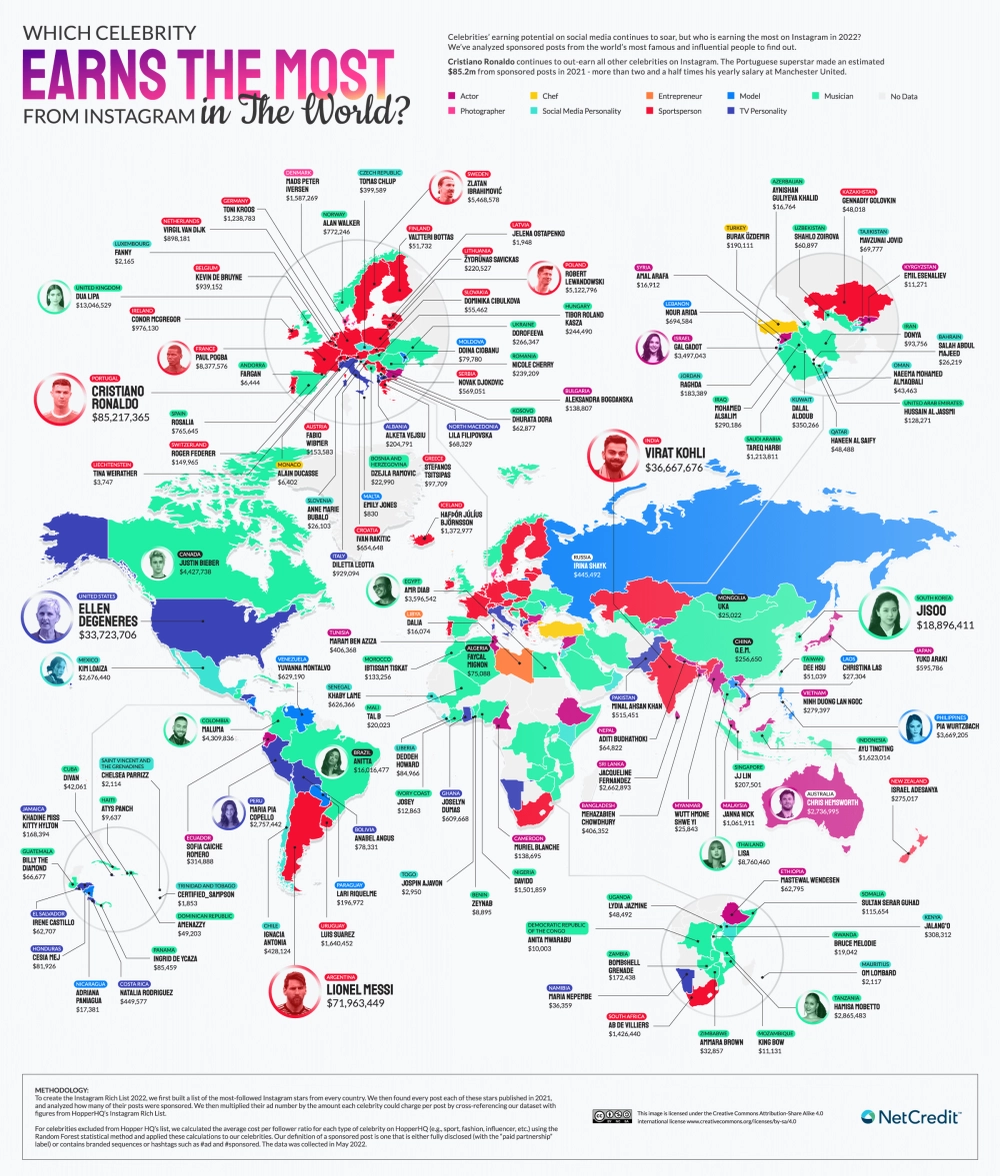
Even with more than 100 million followers, Ellen DeGeneres' TV show's Instagram account charges just $750,000 for a sponsored ad. Ellen shares about one sponsored post every week to cover her expenses, adding up to $33.73 million per year. This makes her the highest-earning Instagram influencer in the U.S. and North America, ranking fourth worldwide.
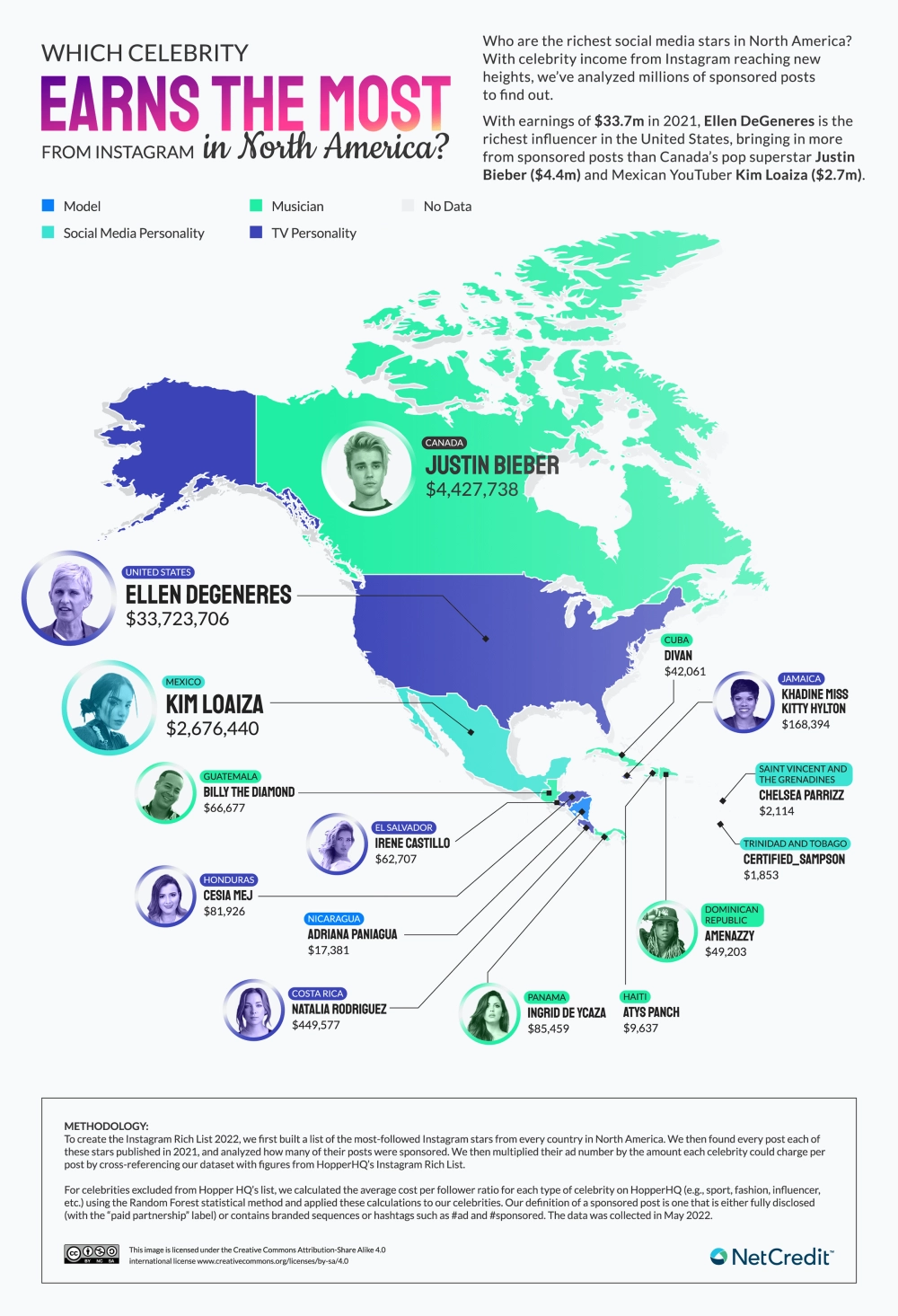
77% of Instagram Influencers Making Money Worldwide Are Women
In the Collabstr 2023 Influencer Marketing Report, it's highlighted that 77% of content creators making money from their content are women, with the remaining 23% being men. The report specifies that this data refers to those actively providing content creation services in return for payment, not a broad comparison of male and female users in general.
Influencer Marketing UK Statistics
Brands based in the UK are no stranger to the influencer marketing world. Here are a few fun stats to consider if you’re also in the UK:
Google Searches for “Influencer Marketing” Grew by 400% in the UK from 2016-2023
Proof that there’s tons of interest in learning more about influencer marketing! Google searches for “influencer marketing” grew by 400% from 2016-2023 in the UK alone.
Influencer Marketing Spend in the U.S. is $26.09 billion in 2023
Up until now in 2023, the United States spent around 26.09 billion U.S. dollars on influencer marketing. However, this was nearly 8 billion dollars less than the global spending, which reached just over 34 billion dollars.
Lifestyle Content Was the Most Popular Influencer Category in 2020
Influencer marketing content spans a wide array of niches, with many influencers specializing in just one. In 2020, lifestyle content reigned supreme as the most popular influencer category in the UK. It was followed by travel and food content.
Influencer Marketing Industry Growth Statistics
Influencer marketing isn’t anything new, but the industry sure has grown tremendously in recent years. This data shows just how popular it’s become:
Influencer Marketing Has Grown to Become a $21.1 Billion Industry
In recent years, influencer marketing has really been on the rise. What was a $1.7 billion industry in 2016 has since grown to become a $21.1 billion industry in 2023.
Marketers Will Increase Spending on Influencers by 2023
As it’s a booming industry that seems to show a great return on investment, it’s no wonder that marketers plan to increase their spending on influencers by 2023. Surely this will make it even more tempting for content creators to get in on the action.
Micro-Influencers Make Up 47.3% of All Influencers
Luckily, you don’t need to have millions of followers to become an influencer. Micro-influencers can often have just as big an impact as those with larger followings due to their highly engaged and loyal communities. Influencer marketing statistics show that micro-influencers comprise 47.3% of all influencers.
Influencer Marketing for Business Statistics
As a business, working with an influencer can speed up your results by generating lots of traction. Here are some influencer marketing statistics to consider before diving in:
Businesses Make $6.50 for Every $1 Spent on Influencer Marketing, on Average
Now, let’s talk actual money. Data shows that businesses are making $6.50 for every $1 spent on influencer marketing, on average. And, 3% pull in $20 or more. For the majority of businesses, influencer marketing proves effective, with only the lowest 18% failing to produce any revenue.
57.6% of Brands Working With Influencers Run eCommerce Stores
For businesses with eCommerce stores, influencer marketing appears to be a popular way to reach new customers. 57.6% of brands that work with influencers have an eCommerce store to sell their products.
Nano-Influencers Have the Highest Engagement Rate at 2.19%
When trying to choose the right influencer for your campaign, don’t overlook those with a smaller following. Nano-influencers (with 1,000-5,000 followers) have a 2.19% engagement rate, beating out even the mega influencers with over one million followers.
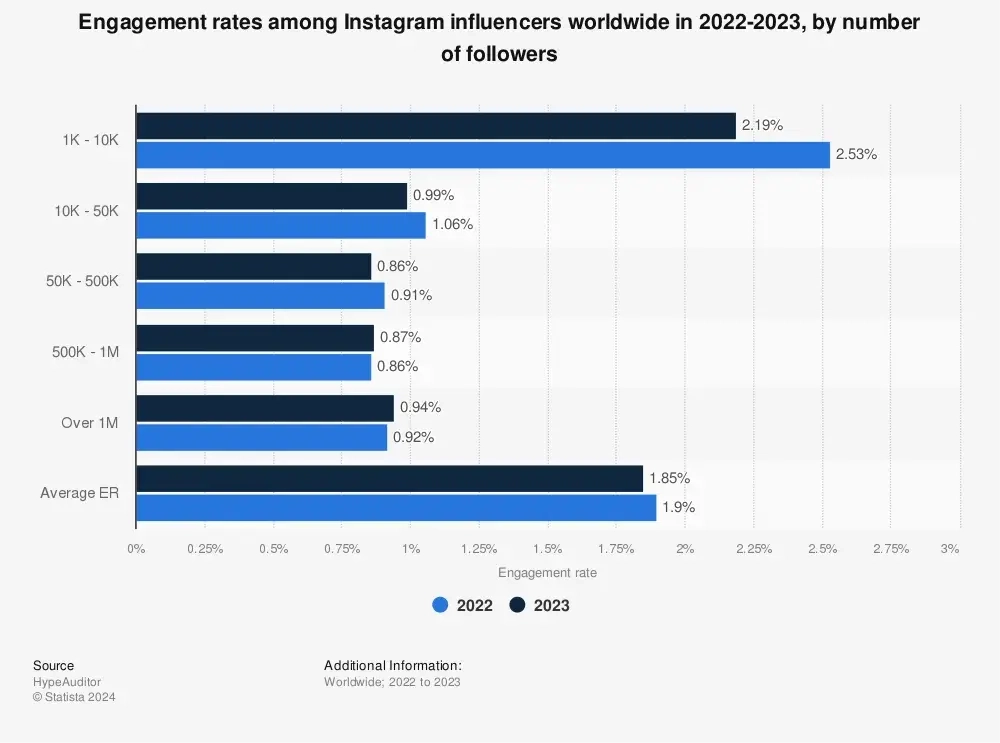
Influencer Marketing ROI Statistics
Seeing a return on your investment (ROI) is crucial for any marketing strategy. Here’s some data around the ROI others have seen on their influencer campaigns to show how effective it can be:
51% Say Influencer Marketing Helps Them Acquire Better Customers
As we know, generating customers is one of the primary reasons brands implement influencer marketing. So, it’s good news that 51% of marketers say influencer marketing has helped them acquire better customers. This is likely because the right partnership will put you directly in front of an audience that’s filled with potential customers.
36% Believe Influencer-Generated Content Performs Better Than Branded Posts
People trust influencers' suggestions more than brand-created (which can be biased) social media content. That's why 36% of marketers believe influencer content does better than content created by brands on social media.
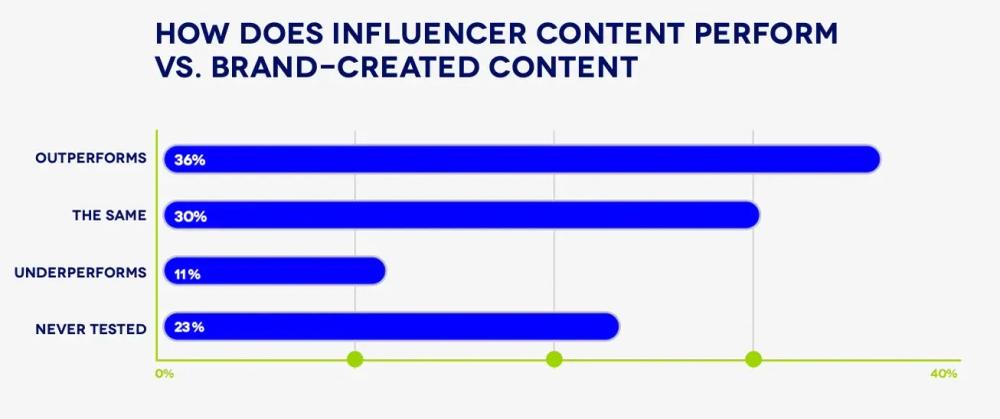
Influencer Marketing Achieved 11x the ROI Than Banner Ads
Paid advertising in the form of website or social media ads has long been the way to boost brand awareness, sales, and more. While they do get the job done, some influencer marketing statistics say it might not be the best way to go. According to a study from Convince and Convert, influencer marketing received 11x the ROI than banner ads did, which is impressive data.
4 Out of 10 Consumers Purchased Something After Seeing it Recommended by an Influencer
Around four out of ten people on social media (39%) mention that influencers or content creators have some influence on their buying decisions. However, only 3% feel these groups have a significant impact on what they purchase.
Among social media users, those who are younger are more likely to be influenced by influencers when making purchases. About 54% of users aged 18 to 29 say influencers affect their buying decisions to some extent. This percentage decreases to 42% for users aged 30 to 49 and further drops to 29% for those who are 50 and older.
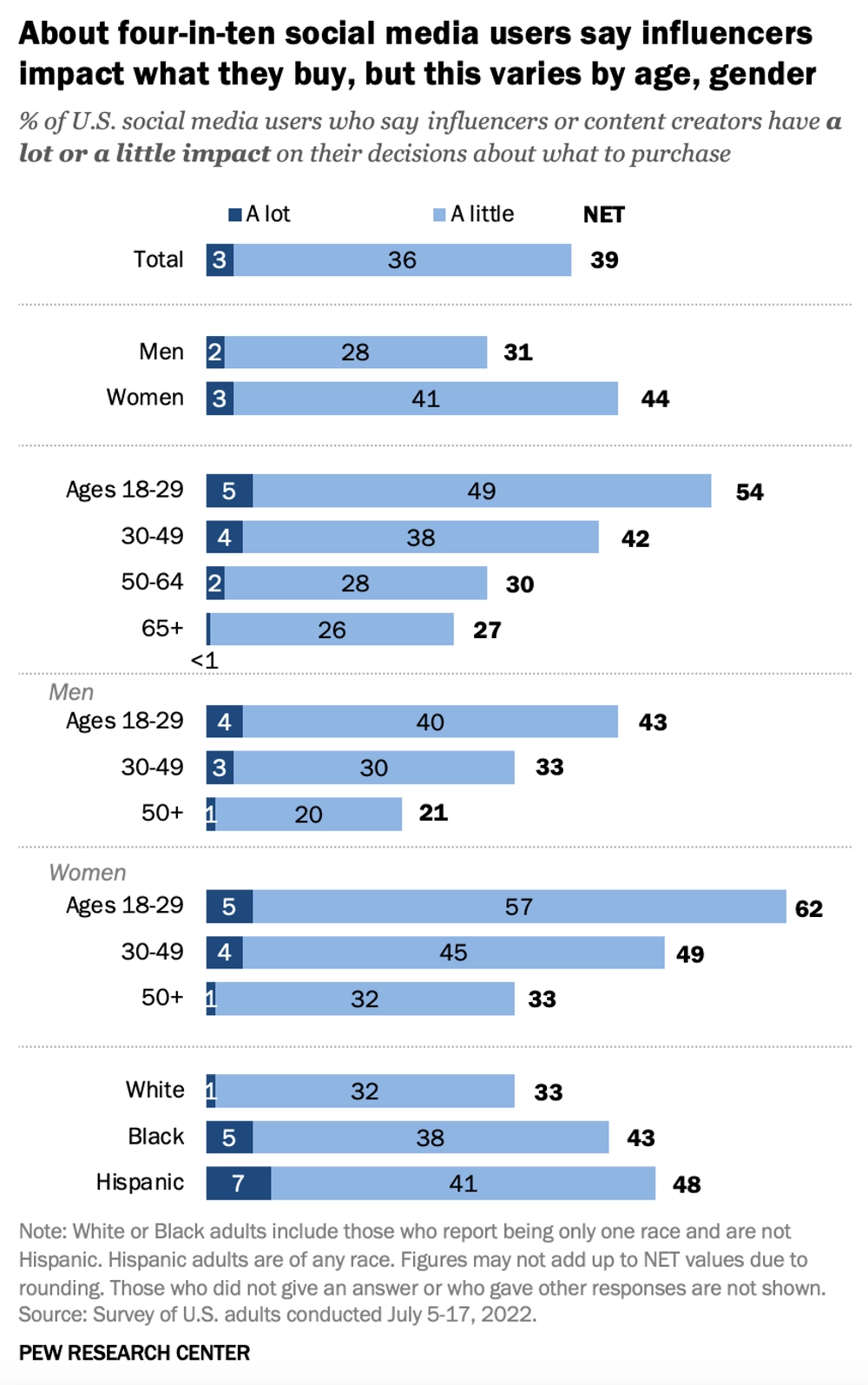
Instagram Influencer Marketing Statistics
Instagram is a popular choice for influencers, and this data makes it clear why it comes out on top:
Instagram is one of the Most Important Platforms for Influencer Marketing
With so many social media platforms out there, it can be tricky deciding where to run your campaigns. It turns out that Instagram is seen as the most important platform for influencer marketing. Not only can brands have influencers post to their main feed, but they can also have them share Stories posts.
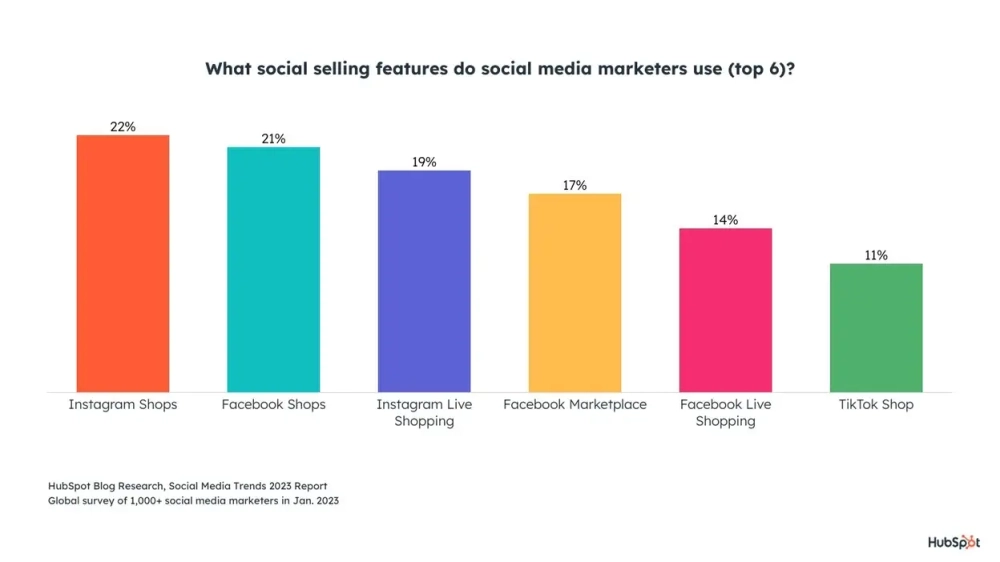
Half a Million Influencers Prefer Instagram
Brands aren’t the only ones that love Instagram. Influencers do too. Half a million influencers said their preferred or only channel of influence is Instagram. This could be because it’s where they have the most followers or simply because Instagram gives them plenty of options for the types of content they can create.
58% of Shoppers in the U.S. Took Action After Seeing a Product on Social Media
According to a survey conducted in 2023, around 58% of U.S. shoppers mentioned that they had bought a product they saw on a social media platform. In the United Kingdom, 44% of respondents reported making a purchase after encountering a product on social networks, while in Germany, the figure was 40%.
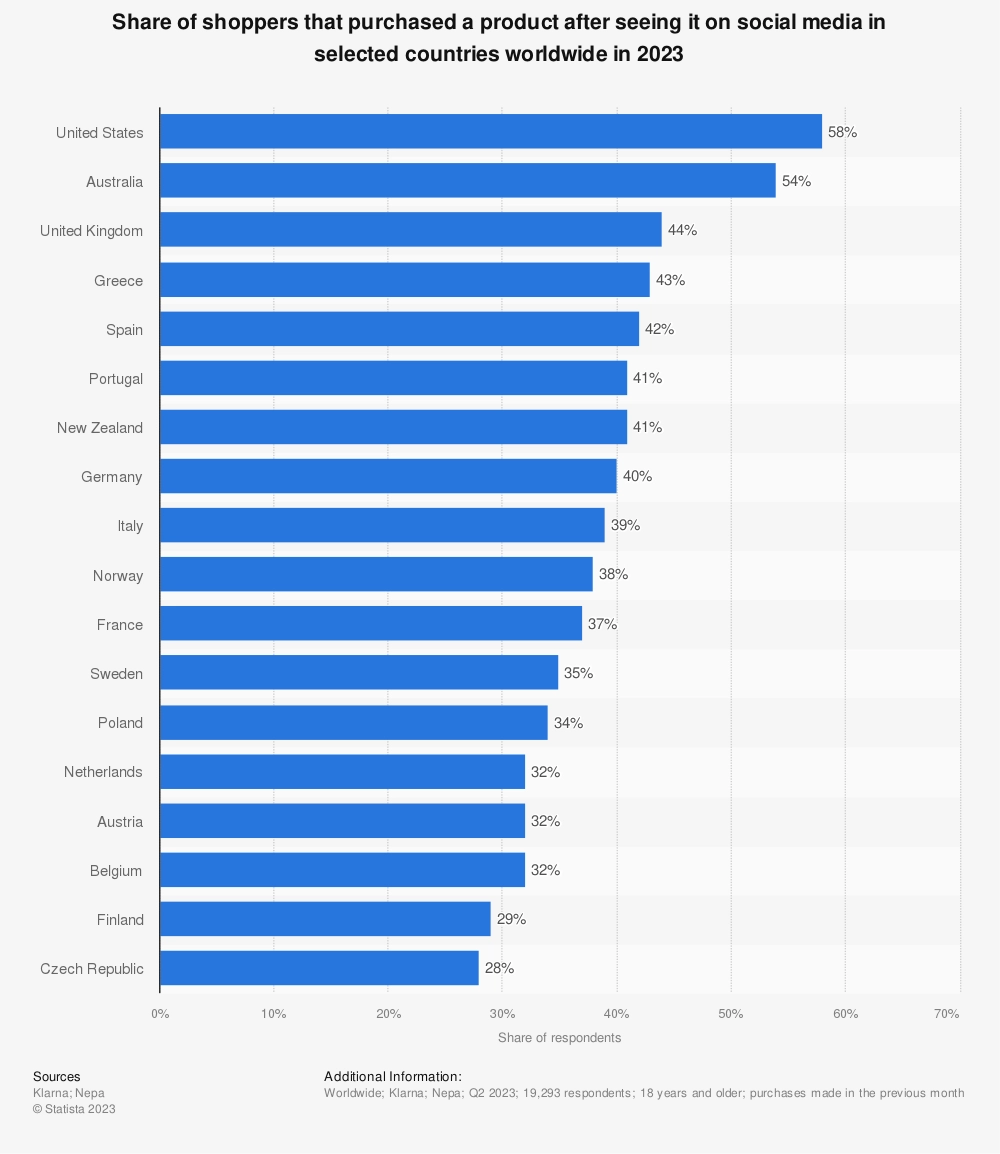
Fashion is the Focus of 25% of Sponsored Posts on Instagram
Fashion brands frequently use Instagram to spread the word about their clothing. 25% of all sponsored posts on Instagram have been related to fashion. That makes it the platform’s leading topic for brand partnerships. Fashion beats out food, entertainment, and baby products.
YouTube Influencer Marketing Statistics
When it comes to video content, YouTube is a favourite platform for influencers to talk about their favourite brands and products. These influencer marketing statistics show why it can be a great platform for influencer and brand collaborations:
70% of Teenage YouTube Subscribers Relate to YouTube Creators More Than Traditional Celebrities
While celebrities still have power when it comes to persuading their followers, we seem to value the average person’s opinion more. Google says that 70% of teenage YouTube subscribers relate to YouTube creators more than they do traditional celebrities.
4 in 10 Millennial Subscribers Say Their Favorite Creators Understand Them Better Than Their Friends
Some Millennials feel their favourite YouTube creators understand them better than their own friends. In fact, four in 10 Millennials agreed with this sentiment. This shows just how important a role YouTube creators play in the lives of the younger generations.
Videos Created by Top YouTubers Perform Better Than Celebrity Videos
When compared to videos owned by traditional celebrities, it appears YouTube videos are generating much better results. Google says YouTube creators see 3x as many views, 2x as many actions, and 12x as many comments. That sounds like a win, right?
6 in 10 YouTube Subscribers Would Follow Advice on What to Buy From Their Favorite Creator Over Their Favorite Celebrity
And as it turns out, YouTube subscribers take product recommendations seriously when they come from their favourite creators. Six in 10 YouTube subscribers would follow advice on what to buy from their favourite creator over recommendations from their favourite TV or movie personality.
TikTok Influencer Marketing Statistics
Even though TikTok hasn’t been around as long as some other platforms, it’s getting some traction in the influencer marketing world. Here are a couple of stats to consider:
TikTok Influencers With Less Than 15k Followers Have a 18% Engagement Rate
With TikTok’s user base rapidly expanding over the past few years, so have the opportunities for brands to run influencer marketing campaigns on the platform.
Influencers on TikTok with less than 15,000 followers see an engagement rate of 18%, beating out Instagram’s 5% average.
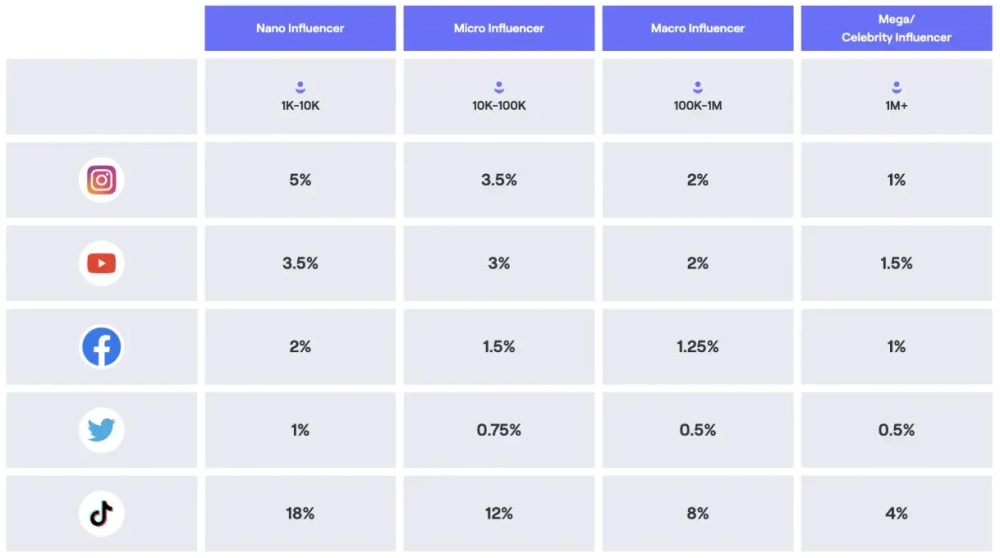
78% of Survey Respondents Buy Products Through TikTok
TikTok has rapidly gained popularity as an influencer marketing platform. It currently holds a prominent position, with approximately 55.5% of marketers incorporating TikTok into their influencer campaigns.
TikTok users are not merely passive viewers of one-minute videos; a substantial 78% of them have actively purchased a product showcased in content created by TikTok influencers on the platform.
Using These Influencer Marketing Statistics
Not only does this data show why influencer marketing is a powerful and effective marketing strategy, but it can also help you determine which platforms to use to reach your target audience.
Instagram, YouTube, and TikTok have proven themselves to be strong platforms for collaborating with influencers.
Just remember that you don’t need a massive budget to work with an influencer. It’s all about creating a campaign that resonates and choosing the right person to collaborate with.
Enjoyed reading these statistics? Find more statistics you need to know in 2026.

You might also like
Don’t be sheepish
let’s talk








